Acknowledgments
M y ardent gratitude goes, first and foremost, to everyone whose name populates this book. You shared your time, your food, and your stories. Thank you.
Thank you to the first champions of this story and my role in imagining it: Amy Evans and John T. Edge. Amy brought the serious pursuit of oral histories to the Southern Foodways Alliance and unleashed this tenderfoot Terkel upon the barbecue trail back in the summer of 2008. SFA founder John T. has been a mentor and guiding light. He has taught me, and many others, how to write, live, and even dress for going on a decade.
Two decades ago, my barbecue guru, Lolis Eric Elie, wrote a book that provided the inspiration for this one. I will never forget his words of advice, an icebreaker that has turned many an awkward interview into an insightful conversation: Ask them what music they listen to while they work. Brett Martin took my book proposal and helped me find an agent; he is the big brother I never had, the friend I will forever cherish. Agents Tim Wojcik and Daniel Greenberg found this book a home. I thank them for their continued encouragement. Matthew Benjamin and the team at Touchstone and Simon & Schuster helped turn eight years of driving, eating, and documenting into The One True Barbecue . Thank you, thank you, thank you.
And, finally, a thousand thanks of praise to Denny Culbert. In November of 2011, we set out for the chilly climes of eastern North Carolina hardly knowing each other. We have since worked on many stories togetherfirst as writer and photographer, then as cocreators and conspirators, and now as very best buds. More thank-yous go to Dennys wife, Katie, my oldest, dearest friend, and the only other person to survive a trip on the Barbecue Bus.
Thanks also to those across the nation who fed me, bed me, and read me: Rachel Arons, Barney Atkinson, Jami Attenberg, Harry Barton, Wes Berry, Sean Brock, Ashley Christensen, Jennifer Cole, Howard Conyers, Kimberly Corbett, Wayne Curtis, Shome Dasgupta, Burton Durand, Elizabeth Engelhardt, Chloe & Tommy Fertel, Matt Fertel & Alexandra Castillo-Kesper, Owen Fertel, Randy Fertel, Melissa Hall, Kira Henehan, Vivian Howard & Ben Knight, Dorothy & Tom Howorth, Pableaux Johnson, Sarah Jones, Nathalie Jordi, Julie & Bill Knox, Blair Langlinais, Mary Beth Lasseter, Dan Levine, Ted Maclin, Sarah Malphrus, Terri Martin, Phil McCausland, Dean McCord & Family, Allston McCrady, Dave Mezz, Sara Camp Arnold Milam, Robert Moss, Ted OBrien, Stacey Ornstein & David Turner, Nicholas Pihakis, Nick Pihakis, Kathleen Purvis, Simone Reggie, Sara Roahen, Drew Robinson, Matt Sartwell, Michael Shemtov, David Shields, Andy Smith, Randy Sparks, Bobby Ticknor, Michael Twitty, Daniel Vaughn, Jim Veteto, Dale Volberg & John Shelton Reed, Allie Wall, Robb Walsh, Nach Waxman, Maggy & Chris Wheeler, Maggie White, Sara Wood, and Joe York.
A special big thanks to the Memphians who sheltered and fed me way back when: the Coleman Family, the Travis Family, their plucky progeny Jay Coleman and Elizabeth Travis, and, last but never least, my first barbecue buddy, Jonathan Large. Thank you to my parents, who trusted me with their brand-new RV, encouraged their three sons to explore, and might have become even bigger fans of Scotts-Parkers Barbecue than myself. And to Susie Penman, my first reader, who pokes and scratches each and every draft I write into polished shape. This book is all the better, I am all the better, as a result of your attention and love.

RUSH JAGOE
RIEN FERTEL is a Louisiana-born-and-based writer, historian, and teacher who grew up washing dishes and busing tables in his familys chain of restaurants. While earning a PhD in history, he spent four years on the road documenting barbecue for the Southern Foodways Alliance. His work has appeared in dozens of print and online publications. He lives and teaches in New Orleans.
For even more tasty bites check out
RIENFERTEL.COM
MEET THE AUTHORS, WATCH VIDEOS AND MORE AT
SimonandSchuster.com
authors.simonandschuster.com/Rien-Fertel
 Facebook.com/TouchstoneBooks
Facebook.com/TouchstoneBooks
 Twitter.com/TouchstoneBooks
Twitter.com/TouchstoneBooks
CHAPTER 1
Hungry
I make my stand upon pig.
CHARLES LAMB
T hough I was born and raised in the South, I grew up entirely barbecueless. My birthplace of Lafayette, Louisiana, the hub city of Cajun culture, occasionally harbored a franchise chain out of Texas or Tennessee, but none endured for very long or, for that matter, served up any meat that any self-respecting Texan or Tennessean would deem to be quality barbecue. Louisianans, especially those in Cajun country, are a people raised on the hog but not barbecue. A few links of boudin, a pork, rice, and spice-filled sausage, best eaten still warm while sitting on the hood of your car or truck, is my favorite snack. We consume plenty of cured pork products, like tasso, andouille, and smoked sausage. Although its a disappearing custom, Cajun families still gather for a harvest-season pig slaughter and curing called a boucherie that, accompanied by music, dancing, and too much alcohol, extends over a weekend. Elsewhere in Cajun country, men roast suckling pigs, called cochon de lait , or pig in milk in French, a rite of spring in a handful of small towns.
Growing up in the suburbs, I hazily remember seeing a barbecue pit in the backyard of my family home, not that it saw much use. Neither of my two dads, my birth father nor my stepfather, fired up the Weber for a Sunday rack of ribs, much less to char-grill a hamburger. Not that my two brothers and I were raised on a meat-free diet. Because my mother managed a steakhouse, we were a beef family, spoiled with the riches of steak. I worked as a busboy at her restaurant throughout my teenage years, and, on a whim, I can still conjure up the scent of seared steaks sizzling in pools of molten butter, as if the essence of beef had seeped into my skin.
Throughout my college years, while living in New Orleans, on several occasions en route to concerts or to visit friends, I detoured through hellish Atlanta traffic for Styrofoam takeout trays of charred and fatty bones from Fat Matts Rib Shack. Later, and further afield, I road-tripped to the Hill Country surrounding Austin with the sole intent of tasting a half dozen or so sausages and beef briskets, each more fat capped and smoke ringed than the next, to round out a gluttonous vacation that was very nearly pleasurable enough to make me consider moving to Texas. Eventually, I moved up to New York for a graduate degree and dined at Blue Smoke, a posh Murray Hillarea restaurant that covered the breadth of the nations barbecue cultures, complete with a complementary wine list.
For me, barbecue, in all its forms, existed as a vague notion. Real barbecue truly remained a mystery, lingering, like smoke, at an intangible distance. But in the summer of 2008 I traveled throughout Memphis recording oral historiescapturing the narrative histories and the personal stories behind the foodas a freelancer for the Southern Foodways Alliance, a University of Mississippibased organization devoted to, as their mission states, documenting, studying, and celebrating the diverse food cultures of the changing American South.

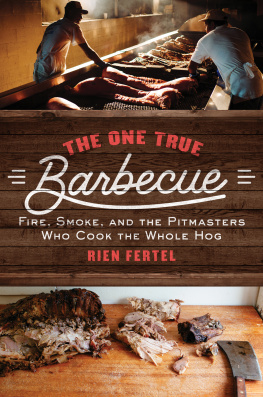



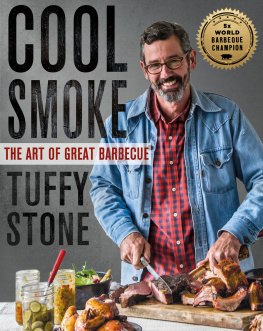
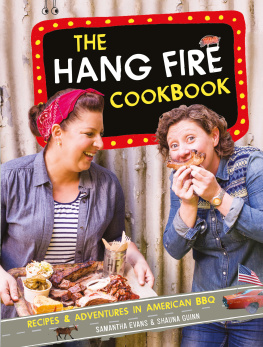
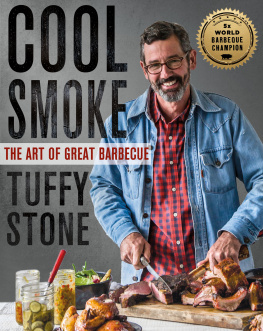
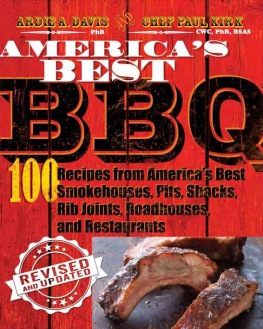
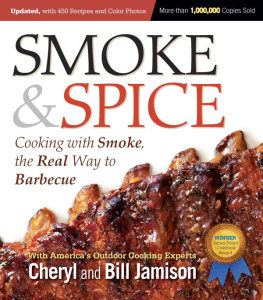
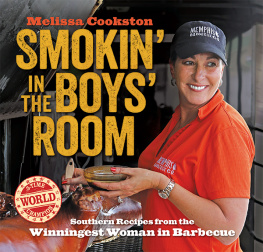

 Facebook.com/TouchstoneBooks
Facebook.com/TouchstoneBooks Twitter.com/TouchstoneBooks
Twitter.com/TouchstoneBooks